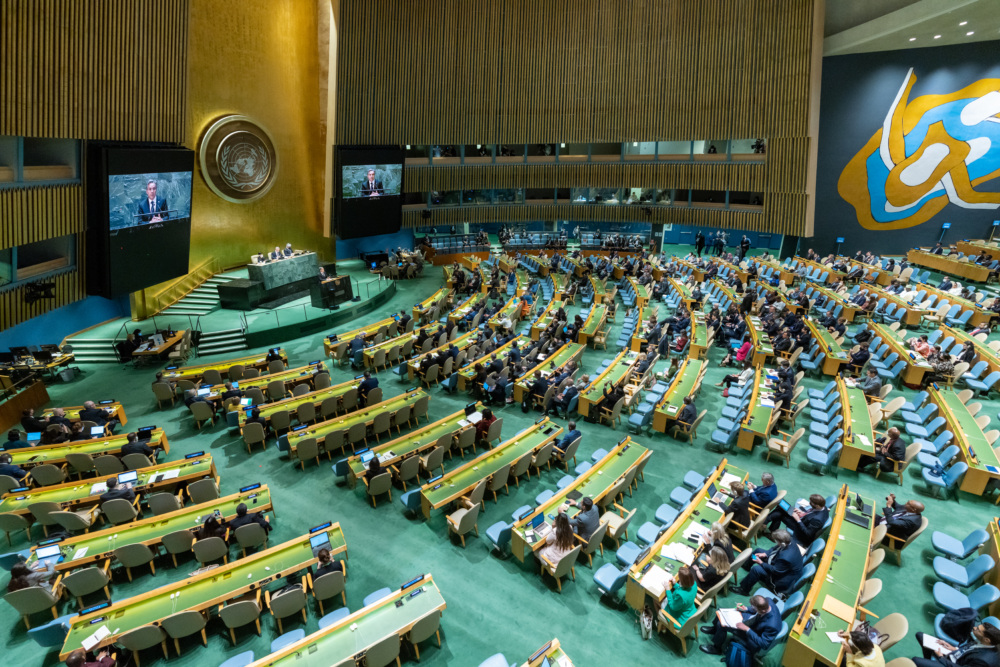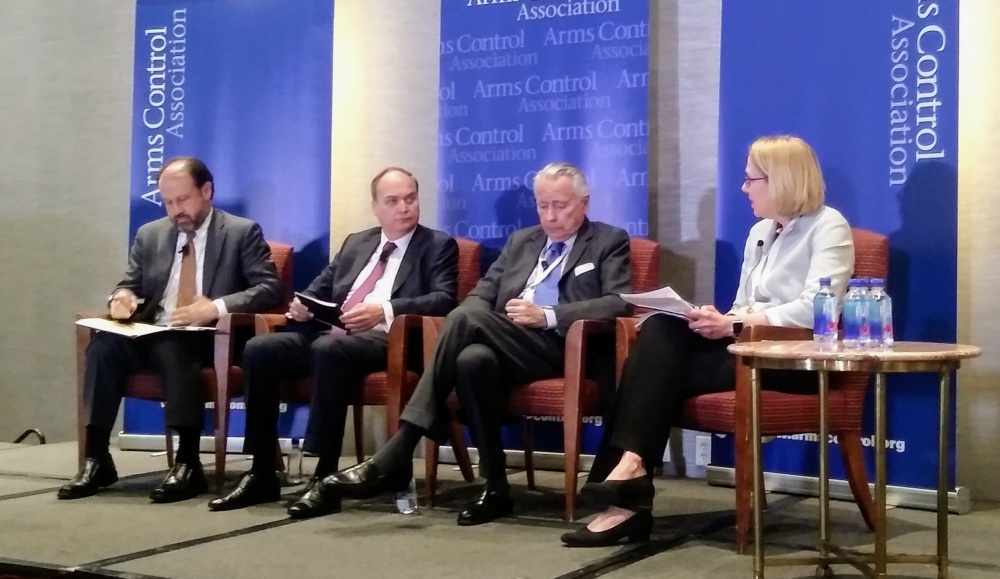This post was written by Jessica
Rogers, an intern with NTI’s Global Nuclear Policy Program. Rogers is
a graduate student in the Security Studies Program at Georgetown University’s
School of Foreign Service.
The Dangerous Escalatory Cycle in US-Russian Strategic
Relations
On the opening panel of the Arms Control Association’s Annual
Meeting this week, NTI President Joan
Rohlfing warned that US-Russian strategic relations are at an extremely
dangerous stage and moving in the wrong direction. It is time, she said, to
“stop arguing about how the cart got into the ditch, and instead talk about how
to get it out.”
Her fellow panelists— Russian Ambassador to the U.S. Anatoly Antonov
and former START negotiator Ambassador Richard Burt—shared Rohlfing’s concerns
about the dangerous escalatory cycle in US-Russian strategic relations.
“We have been in an arms race for some period of time,” Rohlfing
said. At the same time, she said the US and Russia are locked into mutual
vulnerability for the foreseeable future and cannot spend their way out of it.
Instead, she urged, the governments should reorient to arms control as a means to
achieve a strategy of reducing the chances, consequences, and costs of war.
Extending New START Without Conditions
Rohlfing said the first step would be to extend the 2010 New
START arms-reduction treaty without conditions. She warned that efforts to renegotiate
the terms of the treaty now would risk its expiration in 2021. Adding new
weapons or parties to New START would require a new treaty rather than a simple
executive extension. Instead, the United States and Russia should extend New
START first to build the space and time needed to resolve issues on both sides.
Similarly, Ambassador Burt warned against turning extension
discussions into new negotiations in the hope of getting a better deal.
Instead, he recommends keeping the New START extension simple and giving
priority to issues that can be renegotiated in any follow-on agreement
discussions.
Russian Ambassador Antonov reminded the audience that although
Russia has concerns about New START that need to be addressed, it “didn’t
introduce any conditions for extension.”
“It seems that we have to stick to old provisions,” he added, expressing
hope that issues of concern can be resolved through the treaty’s Bilateral
Consultative Commission.
Lastly, looking to the Nuclear Non-Proliferation Treaty (NPT) Review
Conference next year, Rohlfing called on the US and Russia to consider additional
progressive efforts such as further nuclear reductions and initial negotiations
for a follow-on agreement to New START.
Preventing Deployment After the INF
Regarding the 1987 Intermediate-Range Nuclear Forces (INF)
Treaty, none of the panelists expressed much hope of saving the treaty at this
point. The United States formally suspended the treaty in February, after
announcing in October that it would withdraw due to Russian non-compliance. “Both
sides should have been open to making the necessary changes to stay in
compliance.” Ambassador Burt remarked. “Unless both sides are willing to go the
extra mile,” he assessed, “this treaty is a goner.”
Rohlfing and Ambassador Antonov both expressed the view that the
focus now should be on preventing the deployment of INF-range weapons. Antonov reiterated
President Putin’s statement that “Russia will not deploy intermediate-range or
shorter-range weapons . . . neither in Europe nor anywhere until United States
weapons of this kind are deployed to the corresponding regions of the world.”




